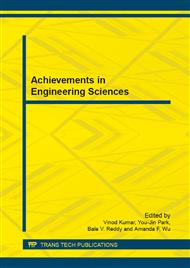p.1454
p.1460
p.1465
p.1471
p.1478
p.1483
p.1488
p.1493
p.1498
Calculating the Reliability and Reputation of Agents in E-Commerce Multi-Agent Environments
Abstract:
E-commerce multi-agent systems have some features of autonomy and commercial transaction that improve rapidly and become a powerful tool for buying and selling products online. While multi-agent systems can break interactions in distributed and heterogeneous environments, malicious behaviors of the agents are a potential hazard in distributed e-commerce applications. Hence, calculating the reliability and reputation of agents play a critical role in determining how interactions occur and who to interact with. The way of calculating the reliability and reputation of each agent should be based on different elements, and there are no standard elements to compute reliability and reputation of each agent in multi-agent environment. This paper analyses some recent proposed methods in calculating reputation and reliability of each agent. The ultimate aim of this study is to define the standard elements which should be considered to calculate the reliability and reputation of agents in e-commerce multi-agent environment.
Info:
Periodical:
Pages:
1478-1482
Citation:
Online since:
April 2014
Keywords:
Price:
Сopyright:
© 2014 Trans Tech Publications Ltd. All Rights Reserved
Share:
Citation:


